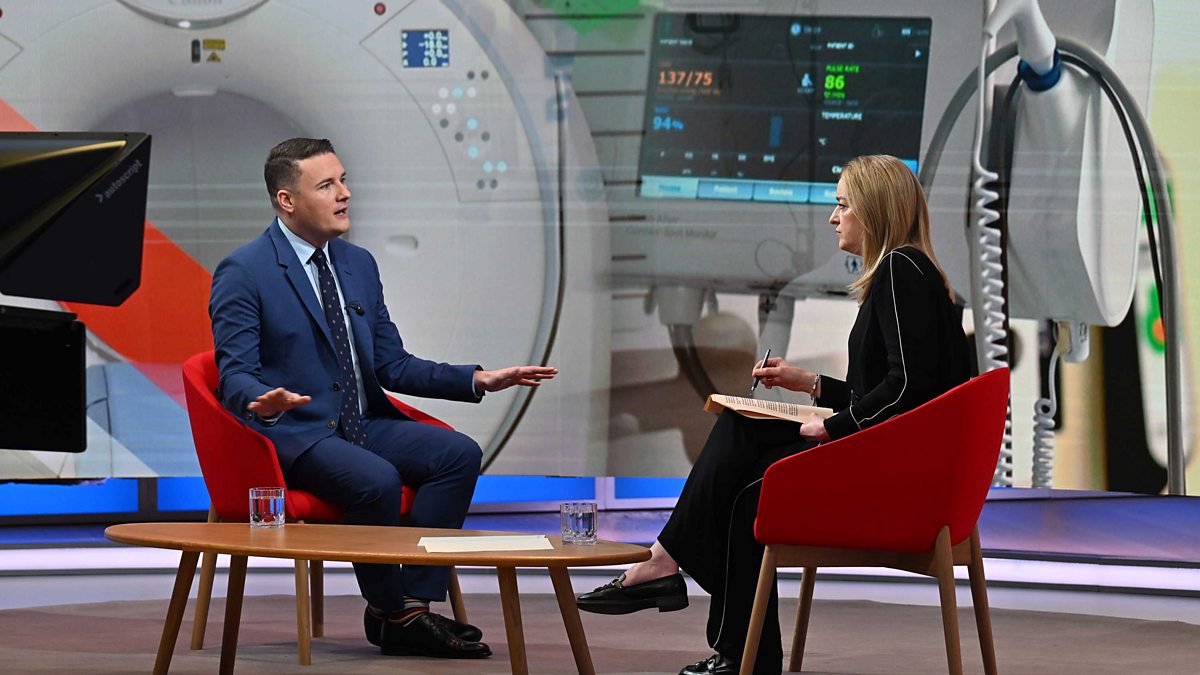Cowper’s Cut 367: A Farewell To Arms’ Length, as NHS England is put out of its misery

“We’ll never really know if NHS independence was effective: it is impossible meaningfully to separate the performance of the NHS Commissioning Board from the two powerful and politically-savvy individuals (Sir David Nicholson and Sir Simon Stevens) who ran it while it was independent.”

Andy Cowper, Health Policy Insight, February 2021
Well, that escalated fast.
NHS England is for the dustbin.
It is an ex-Commissioning Board: it will cease to have endless further meetings about endless further meetings.
NHS England’s lack of friends in high places or obvious reasons to exist came home to roost, as PM Sir Keir Starmer dropped his carefully-concealed, Treasury-inspired bombshell in his speech on Thursday: “I don’t see why decisions about £200 billion of taxpayer money on something as fundamental to our security as the NHS should be taken by an arms-length body, NHS England. And can’t in all honesty explain to British people why we should spend their money on two layers of bureaucracy. That money could and should be spent on nurses, doctors, operation and GP appointments.
“So … we’re going to cut bureaucracy across the state; focus government on the priorities of the working people; and shift money to the frontline. So I am bringing management of the NHS back into democratic control by abolishing the arms-length body NHS England.
“That will put the NHS back at the heart of government where it belongs. Freeing it – to focus on patients. Less bureaucracy, with more money for nurses. An NHS refocussed on cutting waiting times at your hospital.”
Will people notice the loss of NHS England?
Mmmmmmmm. The people working there who lose their jobs certainly will.
But its independence? Long since gone: NHSE’s independence was revoked by what became the 2022 Health And Care Act, as I pointed out back in 2021.
The ultimate hospital pass
The argument for abolition got traction because NHS England has simply been very bad at doing the things that it was meant to do: managing NHS financial and operational performance.
Both remain poor. NHSE’s exiting boss, The Woman In Black Amanda Pritchard was indeed in public denial about the productivity problem until far too recently.
The English NHS’s repeated safety scandals (particularly in maternity and mental health services, but also the ongoing and under-acknowledged failure to improve long A&E waiting times) do not speak of an organisation worth saving; likewise, NHSE’s passive acceptance of a long-dysfunctional Care Quality Commission.
As to improvement, the few longstanding and value-adding programmes such as Getting It Right First Time have remained stubbornly optional. Their supposed Modernisation Agency reboot NHS IMPACT has had almost none, having not even added to the four slender case studies they published last October.
Nor was NHSE’s set of regional presences any greater an asset to the system. I am yet to talk to local leaders who experienced them other than as a policing mechanism, and an ineffectual one at that. Strategic health authorities were not perfect regional presences, but they were widely regarded as effective, and even sometimes helpful ‘ring-holders’ in local disputes.
SHAs also brought through and foregrounded talented leaders: it is, in the main, hard to say the same of the NHSE regional presences.
For some years, I have been describing our current approach to inspection, oversight and regulation as like having a constellation of regulatory Death Stars orbiting the English NHS.
The key point is that they have proven to be ineffective and shit regulatory Death Stars. So huge is the overlap between the Care Quality Commission and the Health Services Safety Investigations Body that they have had to create a formal Memorandum Of Understanding to address it.
NHS England have not worked effectively to help providers and systems to recover or improve performance. Really effective local leadership, as in Barking Havering and Redbridge, has been the common factor in organisations that have sustained improvement.
Where NHS England’s efforts at performance management have not seemed performative, they have seemed PR-oriented, recycling poorly-performing leaders into ICBs/ICSs - or indeed into parts of NHSE itself. In doing this ‘second chance’ work (which, when appropriate, can be a key national function), NHSE have lacked curiosity and discernment as to who has merely been over-promoted or unlucky, and who has been incompetent or malign.

NHS England has not even been smart about doing the kind of thing it should do once, centrally. Health Service Journal reported this week on the slowing down of their national procurement strategy: something that could genuinely save transformational amounts of money.
RIP commissioning
As to the plans announced by The Woman In Black’s successor temp, Mr In-Between Sir James Mackey to cut Integrated Care Board’s management running costs by a further 20% by this October, these sound very much like an early death knell for ICBs as local system managers.
Just last November, Mr Streeting told the NHS Providers conference “the framework I’m setting out today is based on triple devolution: with power shifting out of the centre to integrated care boards (ICBs), to providers and, crucially, to patients. I want to lead an NHS where power is moved from the centre to the local and from the local to the citizen. Morrison meets Bevan.”
Ahem. The current and explicit change to a Streeting-led Health Service is the opposite of this.
In the same speech, the Health Secretary went further: “Amanda set out yesterday that NHS England, not ICBs, will be responsible for managing performance of trusts. When I talk to ICB leaders I hear mixed views about where they should be focusing their efforts. There is no uniformity and too much confusion.
“So let me be clear: I want to see local commissioning back and I want to see ICBs leading it. ICB chiefs, I am talking directly to you: you will lead the transformation of care - the pioneers of reform. Your organisations will play a critical role in doing what we’ve never pulled off before.
“I want ICBs to focus on their job as strategic commissioners and be responsible for one big thing: the development of a new neighbourhood health service. It will focus on building up community and primary care services with the explicit aim of keeping patients healthy and out of hospital, with care closer to home and in the home.”

Commissioning has spectacularly failed to deliver on NHS reform, as one of its prime intellectual advocates, the late, great health economist Professor Alan Maynard wrote in April 2013. That piece won’t have been unknown to Simon Stevens when he started his subtle subversion of the Lansley reforms with the 2014 Five Year Forward View.
Yet the Health Secretary apparently now wants IBCs to deliver commissioning of the biggest change in NHS history, on halved running costs.
Right.
Perhaps Mr Streeting really likes a challenge.
Much more likely, this is the point at which NHS commissioning explicitly dies.
The NHS has always needed regional presences, and unless Mr Streeting genuinely thinks he can run the whole train set from his Whitehall office, then the probable fate of ICBs and ICSs will be to assume the local role. It doesn’t look as if they will have the necessary tools to do that with, which will be interesting.
I’ve found the cost savings from abolishing NHS England!

Cost savings?
Mmmmmmmmm.
It is suggested that the abolition of NHSE may save £500 million across the next two financial years: to put that in context, the annual NHS revenue budget for England is about £180 billion.
That’s not very much more money for nurses.
There is also going to be a big redundancy bill in this financial year.
The PM explained more of his thinking about public sector reform in this Institute For Government podcast.
The buck now stops with Wes Streeting
In his announcement to the House of Commons of these changes, Health But Social Care Secretary Wes Streeting told Parliament “there are more than twice as many staff working in NHS England and the Department of Health and Social Care today than there were in 2010 - twice as many staff as when the NHS delivered the shortest waiting times and the highest patient satisfaction in history.
“Today, the NHS delivers worse care for patients, but is more expensive than ever before. The budget for NHS England staff and admin alone has soared to £2 billion. Taxpayers are paying more, but getting less. We have been left with two large organisations doing the same roles, with an enormous amount of duplication.”
Mr Streeting quoted many stats from the 2024 Darzi Review, but was silent on its view that “a top-down reorganisation of NHS England and Integrated Care Boards is neither necessary nor desirable".
SOS Streeting’s words on “talented, committed public servants working at every level of the NHS and my Department, including at NHS England, who I have had the privilege of working with over the past eight months” were also interesting: “The reforms we are announcing today are not a reflection on them. They have been set up to fail by a fragmented system that holds them back. The actions we are taking today will change that”.
An article for the Boris Johnson Fanzine

Was this the same Wes Streeting who wrote for key NHS stakeholder publication the Boris Johnson Fanzine that “NHS England was formed out of backside-covering … I’m not interested in hiding behind other people, but nor is this a power grab. I’m taking power in order to give it away”?
Interestingly, the original version of Mr Streeting’s article had a line promising that “I’m ending the command and control, so frontline staff can focus on better care for patients”. This line is no longer present.

Appearing on the BBC Laura Kuenssberg Show, Mr Streeting said, “I'm going after the bureaucracy, not the people who work in it. I can't sugar coat the fact there will be a significant number of job losses. And we will want to make sure we are treating people fairly and supporting them properly through that process.
“I'm not criticising them, but I've got to make sure the system is well set up. Because I'm presiding over an NHS at the moment where ambulances don't arrive on time, where people can't get a GP appointment when they need one, where NHS dentistry barely exists in parts of the country.
“These are big fundamental problems and we've got to make sure every penny is put in the right place. We will shortly be publishing the findings of Dr Penny Dash, who did a big review of the way in which we regulate in the NHS: there is an over-regulation. Front-line NHS leaders are complaining to me that they could deliver better care for patients and they could deliver better value for taxpayers.
“But they are often receiving a barrage of commands – sometimes contradictory and competing demands – from the Department for Health, from NHS England and from the wide range of regulators in this space … if we can simplify as much as we can, and do away with this idea that everything in a system this vast, this big, can be commanded and controlled with levers being pulled in Westminster and Whitehall, we will set up the NHS to succeed”.
When resignations come, they come not single spies but in batallions
The start of the week was like Heathrow in holiday season, so fast were NHSE national directors’ departures being announced: finance director Julian Kelly, chief operations officer Emily Lawson and chief delivery officer Steve Russell.
At one point, ‘I Resign Too Monday’ was getting quite “I’m Spartacus”.
Comments both below the relevant HSJ stories and in informal communications mainly focused on the surprising lack of news about Chris Hopson and Navina Evans. Draft titles of this column included ‘The Long Beige Monday’ or ‘The Bonfire Of The Inanities’.
What it all means
It’s too early to know yet exactly what all of this scrabbling around for a health policy and deciding on the Streeting Health Service as the solution means.
But we know one thing: it means a lot more political centralisation of influence, power and blame.
Mr Streeting may find that old corruption of Harold Acton’s dictum useful: “all power delights, absolute power is absolutely delightful”. Or he may not.
We shall see.
Of the commentary pieces, the best I have yet seen were from Alastair, Isabel, Sally and Siva. All are worth your time.
Sign of the times alert: private equity Assura bid looks OK

I previously covered the private equity bid for NHS property provider Assura, and this week the Financial Times reported that “buyout giant KKR and infrastructure backer Stonepeak Partners have made a nonbinding offer to acquire the company for 49.4p per share, a 32 per cent premium to its closing price before KKR’s takeover interest was first publicised last month”.
KKR are well-known for their investment in Alliance Boots in 2007, later re-selling 45% of their stake in the chain to Walgreens for a big profit in 2012. Three years later, Walgreens, whose ownership of the pharmacy chain has not been a triumphant success, bought the rest. They are now seeking new private equity outright ownership from Sycamore.
Fun stuff! Good luck, Assura. Assura hirers: maybe look at remortgaging?
Recommended and required reading
Desperately sad piece in The Londoner about the death by suicide of NHS cardiologist Dr Jagdip Sidhu highlights the perennial issue of workforce welfare.
Excellent book-trailing article for the Times by Suzanne O’Sullivan on the overdiagnosis epidemic.
The Financial Times tries to understand why anybody in their right mind would claim that AI will save the UK government £45 billion. Spoiler: it’s nonsense.
Generic semaglutide might help ease pressures on pharmaceuticals budgets, the FT reports.
More credulousness of pharma industry complaints in the comically uncritical Boris Johnson Fanzine.
Wes Streeting’s senior aide Sam Gould has been suspended after having pleaded guilty to indecent exposure, The Sun reports.





